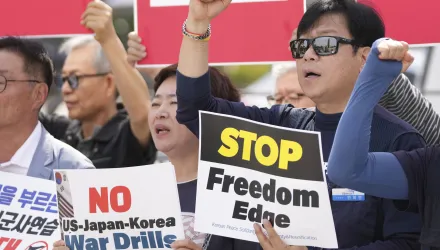International Security is America's leading peer-reviewed journal of security affairs.
Summary
The belief that U.S. forces regularly violate the norm of noncombatant immunity (i.e., the notion that civilians should not be targeted or disproportionately harmed during hostilities) has been widely held since the outset of the Iraq War. Yet the evidence suggests that the U.S. military has done a better job of respecting noncombatant immunity in Iraq than is commonly thought. It also suggests that compliance has improved over time as the military has adjusted its behavior in response to real and perceived violations of the norm. This behavior is best explained by the internalization of noncombatant immunity within the U.S. military’s organizational culture, especially since the Vietnam War. Contemporary U.S. military culture is characterized by an "annihilation-restraint paradox": a commitment to the use of overwhelming but lawful force. The restraint portion of this paradox explains relatively high levels of U.S. adherence with the norm of noncombatant immunity in Iraq, while the tension between annihilation and restraint helps to account for instances of noncompliance and for why Iraqi civilian casualties from U.S. operations, although low by historical standards, have still probably been higher than was militarily necessary or inevitable.
Kahl, Colin. “In the Crossfire or the Crosshairs?.” Summer 2007



